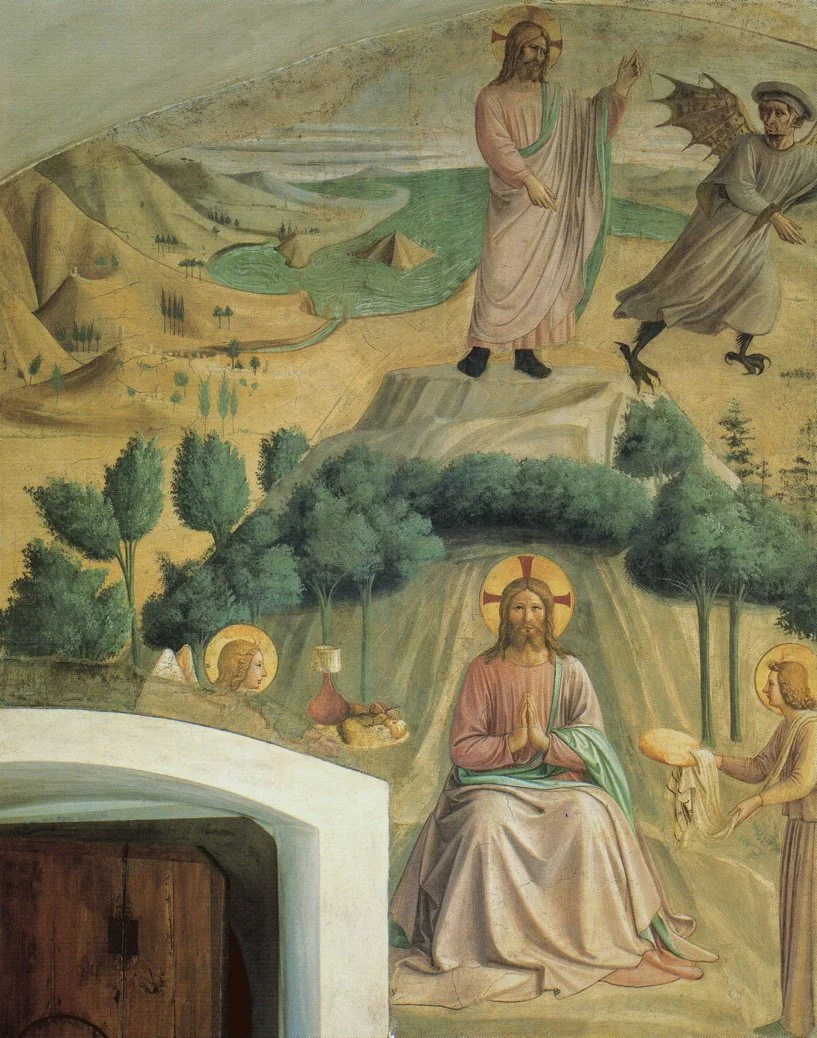This year the feast of the Annunciation fell on a Saturday. A family from the north of England that worships at the Oratory on visits to London attended the High Mass in the morning. Afterwards, they marched around to the house and the parents explained that their twin daughters had a question. “Where are the ghosts?” asked Twin Number One, somewhat indignantly. “Yes,” chipped in Twin Number Two, with a doleful expression: “We came to see the ghosts.” A brief investigation revealed that the last occasion on which this demanding duo had been here was during Passiontide last year. On hearing this, the Provost finally realised what must have caused such grievance and advised them to return to the church the following day, when they would be greeted by ghosts galore.
The veiling of the images that takes place on Passion Sunday, and especially of the statues of the Twelve Apostles that line the nave and flank the sanctuary, certainly gives a spectral appearance to the church. The shrouded figures serve as a memento mori, a reminder of death. This is a subject that most of us probably have a tendency to avoid. Our own death, and especially the death of our loved ones, is something that we naturally fear. Bereavement can be one of the most painful and traumatic experiences we ever have to endure.
Rather than skirting around the reality of mortality with banalities and euphemisms, the Church confronts death head on, with Requiem Masses and daily intercessions for the Holy Souls. She calls us to mourn with the grieving, as Our Lord wept with Martha over the death of His friend Lazarus. At the same time, St Paul enjoins us not to be sorrowful like those who have no hope. The truth is that, through Baptism, death has been transformed for us. We have, in fact, already died, and been buried, and been born again to eternal life in the waters of the Sacrament of regeneration. Through Baptism, we are all “born again” Christians. For those who depart this life in the state of grace, death has become the threshold over which the soul must pass on the last stage of its journey into everlasting life in all its glorious fullness.
Liturgically, the Church’s ultimate confrontation with death occurs on Good Friday, when we enter a building stripped bare of altar linens and even the Blessed Sacrament, and contemplate the horror of God the Son, the King of all creation, being scourged, stripped of His garments, nailed to a Cross and exhaling His last breath in agony. The unbreathable atmosphere of this most sombre of days would be unbearable were it not for the assurance of Easter Sunday, when we know that we shall celebrate the definitive victory over suffering and death that took place near Golgotha on a fresh spring morning in a cultivated garden. It is the triumph of the Resurrection that puts the “good” into Good Friday.
“Father, what will it be like when we die?” This is a question with which most priests are probably familiar. And the answer is that it depends. What it depends on is how much we have been used to dying to ourselves in this life. If we are unduly attached to the created goods and comforts of this world then we can only expect to find it difficult to loosen our grip and repeat those words of Our Lord as He reached the consummation of His Passion- “Father, into thy hands I commend my spirit” (Lk 23:46) – as we leave this earth stripped of everything to face our Particular Judgment.
Lent and Passiontide are a great gift that helps us to prepare for that moment. Through self-denial, and through the giving of ourselves to others by means of alms giving and the Corporal Works of Mercy, the aim is to put self-centredness to death and to enthrone God at the centre of our lives by worshipping Him in spirit and in truth and ministering to Him in our neighbour. This is where those Oratory “ghosts” come into play. Most of us have probably lapsed in our Lenten observances to some degree during the last weeks. How conceited we should sound if we told ourselves we had kept the penitential season perfectly. The veiled statues are a stark reminder that the season has shifted into top gear. Now is the time to renew our good resolutions, and to strive to keep them well - and especially to make a real effort in the area of charity, without which our fasting and devotions are worthless. The more effort we make to die to ourselves during the days leading to the Sacred Triduum, the better prepared we shall be to participate most fully in the joy of Easter Sunday. Let us pray for the grace of living in conformity with the death of Jesus, to arrive at the glory of the Resurrection.
Father Julian Large












